Reading Fortunes in a Turkish Cafe
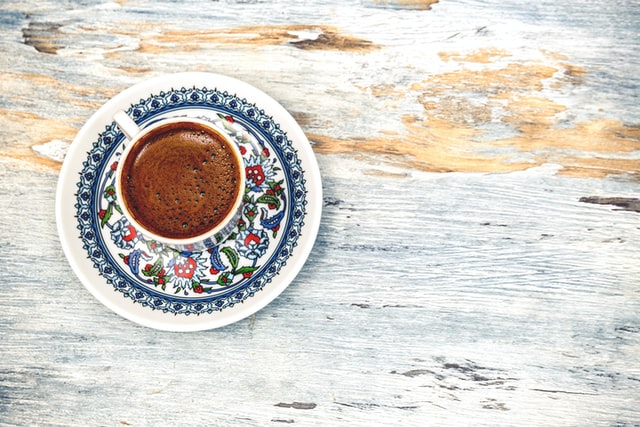
In Turkey, I’ve never felt the need to find a cafe simply to order a hot drink. This is because Turks will serve you tea or coffee virtually anywhere—they love having guests and that always includes serving tea, coffee, cookies, or candy. It doesn’t matter where you are: buying medicine at a pharmacy, eggs at the bazaar, or bread at some random bakery. I’ve had cay (tea) at the local police station, the tax office, the bank, in a hospital, on the street, on many buses, in a hammam (Turkish bath house), and more.
In places that don’t have their own tea pot, there’s usually something like an intercom or walkie-talkie nearby that people ring to find the nearest tea supply. A few minutes later, a man pops out of nowhere carrying a swinging tray filled with little tulip-shaped tea glasses. Generally, the Turkish people I’ve met feel joy in providing food or drink to a person, regardless of whether they just met or have been friends for years.
There’s a certain appeal to having your fortune read. It’s like a ritual which forces you to reflect on where you’ve been and where you’re going.
Still, the Turkish cafe continues to be an essential part of Turkish culture. They’re often where people gather at the end of a long day or during the weekend, for dates or to meet new friends. There’s not much of a bar culture here, so people tend to grab tea together rather than beer. Some Turkish cafes, known as kirathannesi are solely occupied by men, who use the spaces for gossip and gambling.
For the past two years, I’ve been living in the coal mining province of Turkey called Zonguldak. I came to teach English at a university’s satellite campus in a rather small town (Caycuma, population: 26,000) while on a Fulbright English Teaching Assistantship grant. This place is the equivalent of a metropolis for villages, though cows often roam the street adjacent to cars.
Here, cafes are how I have survived, adapted and found my place in a foreign environment. For a place that you could circumnavigate within an hour, there are a surprisingly large number of cafes. Each place is known for something different—one has the best food, another has the best tea, and another is the only place that serves filtered coffee. I often choose my cafe based on what I’m looking to do that day.
From its outer appearance, Cafe Timya doesn’t look like anything special, with mismatched tables and chairs and a view of the grocery store across the street. Despite its sub-par people watching location, it is consistently crowded—mostly with women, ages 12 – 63.
Reading Fortunes in a Turkish Cafe.
Yasar is a sassy, middle-aged woman who reads fortunes there, the person who everyone comes to see. She sits at your table, takes the lira from the top of your overturned coffee cup, tosses it up and begins her prediction. During this time, her facial expressions run wild and she seems to be in something similar to a trance, speaking so quickly that often even my Turkish friends need a translation. She offers gives advice, tells you about the fears and limitations she thinks you have, advises you not to worry and promises that something positive will happen to you.
She’s told me that I’ll meet a Turkish man; I’ll have a visitor; and that I’ll get a pay raise, a new job, and a change of scenery. Often things she predicts happen in some vague way, but sometimes they don’t. Sometimes I forget the details of the reading altogether. However, there’s a certain appeal to having your fortune read. It’s like a ritual which forces you to reflect on where you’ve been and where you’re going.
Turkish coffee fortunes are a common ritual in Turkey. The coffee is made by boiling finely ground coffee with water and sometimes sugar in a special pot called a cezve (which you can request with no sugar, medium-sweet, or very sweet). After drinking the coffee, you’ll put the saucer on top of the cup, turn it around and rotate it inwards to see what’s happening with you.
I’ve had cay (tea) at the local police station, the tax office, the bank, in a hospital, on the street, on many buses, in a hammam (Turkish bath house), and more.
Oftentimes, people place something metal on top such as a ring or coin. When this cools down, you can begin to interpret the shapes left by the grounds of coffee in the cup and on the saucer. Some of the most common shapes and their meanings are as follows:
Streaks or lines: roads/journeys you will potentially go on.
Bubbles/foam at the top: gossip, people are talking about you.
Turtle: home—you will create, find or buy one.
Dog: you’ll see a good friend.
Bottom of the cup is dark: you’re worried about something.
Fish: money.
Dolphin: destiny.
Most of my favorite Turkish cafes are special because of the people I’ve met there rather than their appearance, décor or menu. What I’ve learned most at Turkish cafes is how to enjoy the present moment.
Photo credit for Reading Fortunes in a Turkish Cafe by Unsplash.

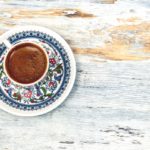



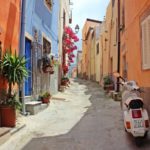
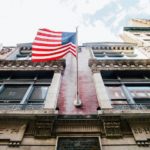

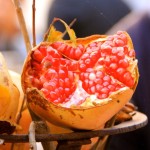
One thought on “Reading Fortunes in a Turkish Cafe”